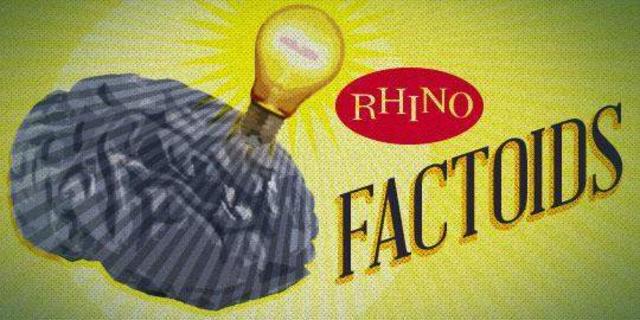Rhino Factoids: Introducing Jimmy Page
50 years ago today, Jimmy Page took the stage for the first time as a member of The Yardbirds, a career move which would ultimately pay off better than he ever could have imagined.
It became evident rather early on in the life of James Patrick Page that he was destined for great things – he was only 13 when he made an appearance on All Your Own, a television talent search in the UK, as part of a skiffle quartet – but things really began to take off for him as a result of performing at The Marquee Club, in London. Performing alongside Jeff Beck, Eric Clapton, Cyril Davies’ All Stars and Alexis Korner’s Blues Incorporated, Page was able to strut his stuff as a guitarist in front of increasingly larger audiences. His talent soon led him into work as a session musician, appearing on the UK #1 hit “Diamonds,” by Jet Harris and Tony Meehan, as well as songs by the Kinks (“I’m a Lover Not a Fighter”), the Who (“I Can’t Explain”), the Rolling Stones (“Heart of Stone”), Them (“Baby Please Don’t Go”), and many, many others.
As early as 1964, however, Page was approached about replacing Eric Clapton in the Yardbirds, a move which he was hesitant to take because he was friends with Clapton. When Clapton quit the band in 1965, Page was offered his spot, but he turned it down because session work had proven so lucrative that he was loath to give it up. Finally, when Paul Samwell-Smith left the band, Page offered to replace him, and the group accepted his offer. Unfortunately, Page and Jeff Beck didn’t get a chance to do much together in the band – it was basically just the one single of note: “Happenings Ten Years Time Ago”) – and it wasn’t long before Beck left the lineup.
In the end, Page only recorded one album with the Yardbirds – Little Games – before the band began to self-destruct, with Keith Relf and Jim McCarty leaving in 1968. Faced with a contractual obligation to tour as the Yardbirds without having a full lineup, Page asked some guys he knew to fill in the blanks, and when he teamed with John Bonham, John Paul Jones, and Robert Plant, the end result was nothing short of musical magic.



